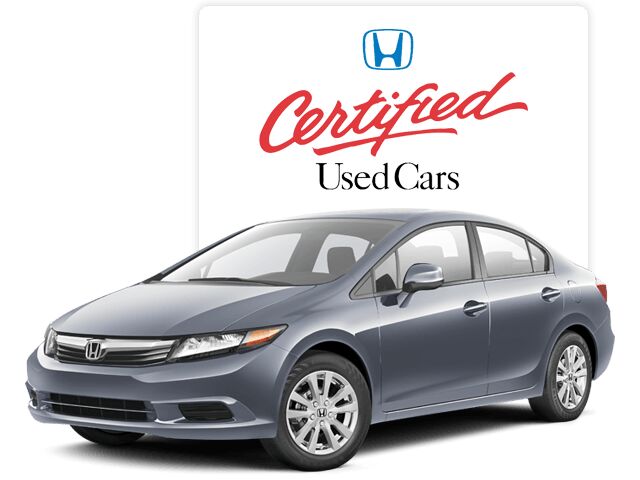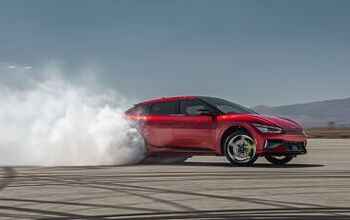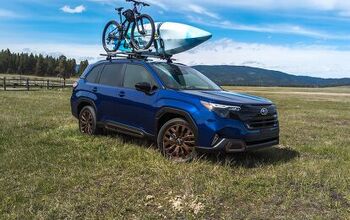Bark's Bites: Oh, the Games They Play With CPO

If you were to listen to the Experts Of The Internet, you might become convinced that Certified Pre-Owned is the only way to go when buying your next whip (I like to say “whip” because I know it annoys many of you). In this case, the experts aren’t entirely wrong — after all, there’s a lot to like about CPO. Late-model cars in like-new condition at a cost that’s considerably less than new, extended warranties, 1,857-point inspections — it’s all good stuff, right? If you play your hand correctly, you can get an outstanding deal and a car that will inspire confidence.
But CPO is a giant pain-in-the-ass for many dealers. Knowing what we know about the dealership world, is it any wonder that a good number of them game the system? If you’re looking to go CPO, you’ll want to know the tricks they pull, and how they affect you, the consumer.
You might be asking, why wouldn’t the dealers like CPO? After all, it means they can charge more money for a car.
Well, yes … and no.
Most consumers have no idea what Certified means. It’s a term that has yet to gain a lot of traction in the mainstream. In fact, at a certain third-party site that decorates itself in orange, less than two percent of customers search specifically for CPO inventory. To the rest of the non-educated car-buying world, Certified often just means “more expensive.”
This is a real problem for dealers, who already struggle to hire salespeople who can accurately describe the value of used inventory. It’s also a problem on those same third-party sites, some of which (you know who you are, CarGurus) use a complex and confusing algorithm to tell customers whether or not a deal is “good.” Even on the sites that don’t actively denigrate their own customers’ inventories, it’s not a positive thing to have the most expensive 2013 Lincoln MKZ in the market.
And then there’s the actual certification process, which is a lengthy and expensive ordeal for the dealership. Every day that a car isn’t on the lot is a day that a dealer is paying to floorplan it and a day that it’s depreciating. Certifying a car can often take up to three days or more, which eats into dealer profit and ties up a service bay that can be used for customer pay work.
That’s the negative side. There must be some positives for the dealer, right?
Of course. On that same orange site, some OEMs, most notably General Motors, have agreements to place all Certified cars into the Premium listing section for free. As a result, CPO cars are seen in many more searches than non-CPO cars.
If they’re actually able to sell the CPO inventory at full pop, then they’ll make more money in gross sales. CPO should, in theory, average about $2,200 per copy. Regular used inventory averages about $1,800. That’s not a bad return on investment (well, not in the car business, anyway).
Most important is the requirement by many OEMs for dealers to take part in CPO programs as a condition of dealer stairstep bonus plans. Ford, for example, does not allow a dealer to participate in its premier program unless the dealer certifies a certain percentage of vehicles. Why is certification so important to the OEM?
Simple. It raises the residual value of used cars, which adds to the prestige of the brand and allows it to command a higher dollar amount for new inventory. In theory, it should be a win-win.
However, dealers wouldn’t be dealers if they didn’t find a way to break the system.
There was an extremely high-profile case last year where a GM dealer was certifying cars that had outstanding recalls. Amazingly, the Federal Trade Commission fined neither the dealer nor GM for this behavior; they just got a very stern hand-smacking.
The most common way dealers break the CPO model is to list models as CPO in their DMS systems that aren’t actually CPO. Why? Again, they get premier placement on third-party sites, which might normally cost as much as $150 extra per car. But there’s a sketchier, shadier reason that they do it, too.
Let’s say a customer comes in on a 2013 CPO Maibatsu Monstrosity that’s listed at $25,000, but the customer thinks that the price is too high and wants to negotiate.
“No problem,” says Mr. Shady Dealer. “We’ll just de-certify the car for you and take $1,500 off of the price.” De-certify? How is this done, you may be asking? Well, duh — the car was never certified in the first place. It’s a neat way for the dealer to seemingly discount a car, when, in reality, the dealer is selling the car for exactly as much as it had hoped.
This also means that the dealer can avoid paying the fees and reconditioning costs involved with certifying a car unless the customer specifies that he’d like to have it certified. Less time in shop, less cost for the dealer — it’s all good. Well, not quite.
There are huge penalties involved with CPO shenanigans — not only from the OEM, but also from the lawman. FTC regulations and local laws are very specific about what must be stated regarding the warranty being offered in any used car advertisement. Advertising a car with a warranty and then removing that warranty is a big no-no. Dealers also can’t charge more for a warranty that is being offered by the manufacturer as a condition of purchase. (Extended Service Plans are another ball o’ wax.) By “certifying” the car at the customer’s request, that’s exactly what the dealer is doing: charging the customer to include a warranty. The FTC will fine the living daylights out of dealers for this sort of behavior, up to $16,000 per car.
Additionally, OEMs will occasionally send an auditor in to inspect CPO records at dealerships, and failing such an audit can result in huge, six-figure fines, and even the loss of the franchise. But, as we’ve discussed many times here, much to the bewilderment of some of the B&B, most dealers are not smart. They will risk the fines to make an extra dollar or two here and there.
So if a dealer tries to play CPO games with you, let him know that you know what they’re up to. You might even manage to scare him into a discount or two. After all, if he’s gonna play, why shouldn’t you?

More by Mark "Bark M." Baruth
Latest Car Reviews
Read moreLatest Product Reviews
Read moreRecent Comments
- Bd2 The "e" nomenclature signifies the e-ATPs which BMW is pursuing.
- Dave M. I'm sorry to see any storied name go away. The lifespan of the Malibu has fit perfectly in my lifetime years-wise. Some of the highlights include the first and second generations, the '78 revamp (very clean design), and the 2005 generation. Ford, GM and Mopar gave this segment away by allowing Toyota and Honda a foot in the door and then always having to play catch-up. How hard is it to make a truly competitive sedan at a profit? Obviously, Japan Inc. figured it out.I've driven a few rentals these past years; the Malibu got the job done but honestly the Passat and Altima were my rental preferences.
- Kcflyer actually yes. It's a shame that a product this uncompetitive can still outsell GM's entire EV offerings. Those products have had billions thrown at them. Imagine how nice the new Malibu, Impala, SS, and Lacrosse would be with that kind of commitment.
- 3SpeedAutomatic Nope....
- Bd2 Looking forward to flooding the rental lots with Hyundai and Kia models, this is just one obstacle now eliminated.


































Comments
Join the conversation
I don't push CPO. When you look at the list of items that is on that checklist, and know the time the dealer is given to go through that list, you know it is impossible. Step one on an alleged CPO car is check the fluids, especially if that check list says they were replaced. Even a noob can look at brake fluid, power steering fluid, or coolant and figure out if it is 40K miles old or not. I just see CPO as a big scam.
According to the independent mechanic we have been patronizing for forty years, CPO simply means they will fix for free what failed because they didn't check it during the certification process.